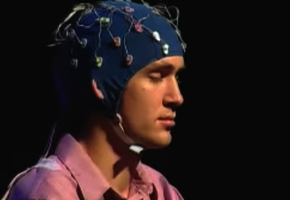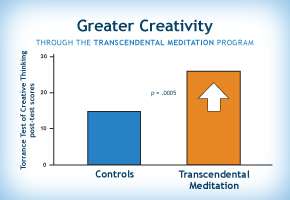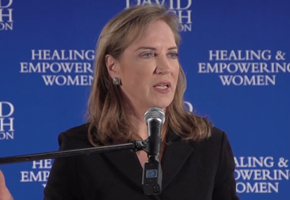Your Brain Is Constantly Changing
 The human brain is said to have 100 billion brain cells or neurons. And each cell connects with 10,000 other cells. That's 100 trillion connections in your brain.
The human brain is said to have 100 billion brain cells or neurons. And each cell connects with 10,000 other cells. That's 100 trillion connections in your brain.
Your brain is a river, not a rock. It's continually rewiring itself throughout life in response to day-to-day experiences. Seventy percent of these connections change every day. New experiences create new neural networks that increase your brain's functionality. It's called neuroplasticity, and allows your brain to change, adapt, evolve.
Stress breaks down brain connections
The effects of stress on your brain can be devastating. Challenges are good and can activate networks, but when challenges become overwhelming and stressful, the brain's higher pathways start shutting down. The system produces stress-related biochemicals such as cortisol.
When cortisol floods the brain, over time, neural connections can break down and brain cells in the memory and executive centres of the brain can wither and die. The prefrontal cortex, which governs executive function - higher discrimination, foresight, and problem solving - goes "offline" under extreme stress. Then the brain's lower pathways take over.
Under stress we are building brain circuits that support reflexive reaction rather than thoughtful analysis, impulsivity rather than a more clear-minded consideration of circumstances.
TM practice builds brain connections
 Studies show that during the Transcendental Meditation technique, the brain becomes more harmonious and coherent - more integrated - immediately creating an expanded network of new neural connections. The different parts of the brain become better synchronised, organised more efficiently - all the different parts working together better as a whole.
Studies show that during the Transcendental Meditation technique, the brain becomes more harmonious and coherent - more integrated - immediately creating an expanded network of new neural connections. The different parts of the brain become better synchronised, organised more efficiently - all the different parts working together better as a whole.
With more coherent brain functioning, everything we cherish about our minds improves: our ability to pay attention, to be empathetic and creative, to remember clearly, to process information, to perceive the world with greater richness.
The coherent, holistic brain pattern Transcendental Meditation begins to occur more and more in daily activity after meditation. We bring the experience of restful alertness, experienced during TM, into daily activity. As a result, Meditators score higher on IQ tests, on creativity and problem solving tests. There's better focus and comprehension, faster reaction time, increased self-actualisation. Students' grades get better, even in one term. Stress and anxiety go down.
Discovery Channel's Pamela Peeke, MD:
 "When you do something like Transcendental Meditation, we now have science, we have hard core science with great tools, functional MRI's, PET scans, that allow us to be able to actually measure, see, visualise, observe, take pictures of what happens in the brain. As you're going through transcendence, you turn on your pre-frontal cortex. And the stress response itself, as you're looking through the limbic system, the amygdala, as you're looking at that entire hypothalamic pituitary adrenal axis, it's becoming quieter. As that becomes quiet, the prefrontal cortex is allowed to optimally function. The whole issue of transcendence is centering to a core of peace.
"When you do something like Transcendental Meditation, we now have science, we have hard core science with great tools, functional MRI's, PET scans, that allow us to be able to actually measure, see, visualise, observe, take pictures of what happens in the brain. As you're going through transcendence, you turn on your pre-frontal cortex. And the stress response itself, as you're looking through the limbic system, the amygdala, as you're looking at that entire hypothalamic pituitary adrenal axis, it's becoming quieter. As that becomes quiet, the prefrontal cortex is allowed to optimally function. The whole issue of transcendence is centering to a core of peace.
"So what's your reward out of this whole thing? You get a bigger brain. Who wouldn't like that? At the same time if you are leading a healthy lifestyle, doing this, exercising, for instance, guess what you're doing? You are inducing the growth of more brain cells. This is called neurogenesis or neuroplasticity in the brain. When that happens, you get a bigger brain.
"And when you have PTSD and all the other forms of trauma and toxic stress, there's no rest. You have to find the rest, and this is by science, by far, the most optimal way to do this."

 Dr. Pamela Peeke is an internationally recognized expert, physician, scientist and author in the fields of nutrition, stress, fitness and public health.
Dr. Pamela Peeke is an internationally recognized expert, physician, scientist and author in the fields of nutrition, stress, fitness and public health.





